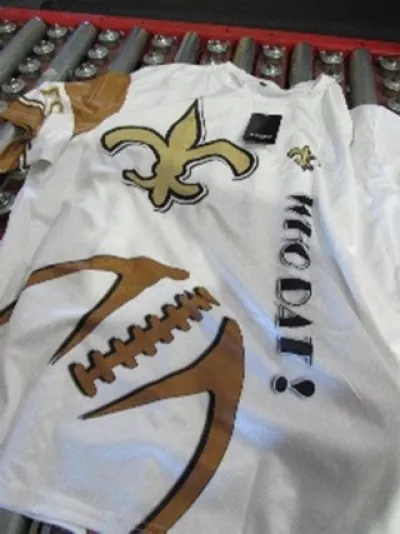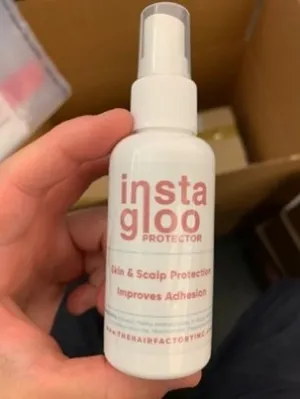NEW ORLEANS – U.S. Customs and Border Protection (CBP) officers, working with Homeland Security Investigations (HSI) and the Food and Drug Administration, have begun their seasonal operations targeting intellectual property rights (IPR) violations. The coordinated federal law enforcement operations focus on interrupting counterfeit efforts in the New Orleans metro area during the holiday shopping season. While CBP and its law enforcement partners consistently target counterfeit goods year-round, the holiday season poses a particular risk, given the increase in shopping during the holidays. Consumers looking for a bargain may unknowingly purchase counterfeit goods.
Costumes, pageantry and sports are central to New Orleans culture, and with that marketplace comes IPR violations and other products that do not comply with U.S. trade laws. In the span of just two days CBP seized eight shipments involving counterfeit merchandise and FDA violative cosmetics at a local express consignment facility in Kenner. Among the items seized were apparel bearing infringing New Orleans Saints and Dallas Cowboys trademarks and fake eyelashes and their adhesives, which violated FDA regulations. The shipments, all originating in China and Korea, were en route to various regional locations such as Slidell, Lafayette, Baton Rouge, LaPlace and McComb, Mississippi.
In general, FDA considers false eyelashes and their required adhesives to be cosmetic products. As such, they must adhere to specific safety and labeling requirements to protect consumers from products that could cause allergic reaction, irritation, or other injury in the eye area. With inaccurate ingredients lists and companies operating outside our regulations, recourse for injury can be impossible.
The trade in counterfeit and pirated goods threatens our nation’s businesses and the livelihoods of U.S. workers, and it threatens the health, safety, and financial security of American consumers.
“Real Saints fans buy real Saints merchandise,” said Terri Edwards, Area Port Director of New Orleans. “To cut costs and maximize profits, counterfeit products are often made of inferior materials, are manufactured under uncontrolled and unsanitary conditions, and are labeled with false product information. They also just look bad. As for fake eyelashes, they’re made in unregulated and unsanitary facilities and may contain dangerous and dirty ingredients – are you willing to put that on your eyelids?”
In Fiscal Year 2021 CBP and HSI seized over 27,000 shipments containing goods that violated Intellectual Property Rights. The total estimated manufacturer’s suggested retail price of the seized goods, had they been genuine, was $3.3 billion.
What many consumers do not realize, is that trade in these illegitimate goods is associated with smuggling and other criminal activities, and often funds criminal enterprises. Consumers can protect themselves and keep profits away from criminals by buying authentic products from reputable stores and internet sites. CBP has authority to enforce trademarks and copyrights at the border if they are recorded through the e-Recordation program.
This operation took place within the New Orleans Field Office, which covers ports of entry throughout the states of Louisiana, Mississippi, Alabama, Arkansas and Tennessee.
CBP has established an educational initiative to raise consumer awareness about the consequences and dangers that can be associated with the purchase of counterfeit and pirated goods. Information about the Truth Behind Counterfeits campaign can be found at www.cbp.gov/fakegoodsrealdangers. Follow us at @CBP, @CBPGulfCoast, @CBPTradeGov, and @DFONewOrleans




